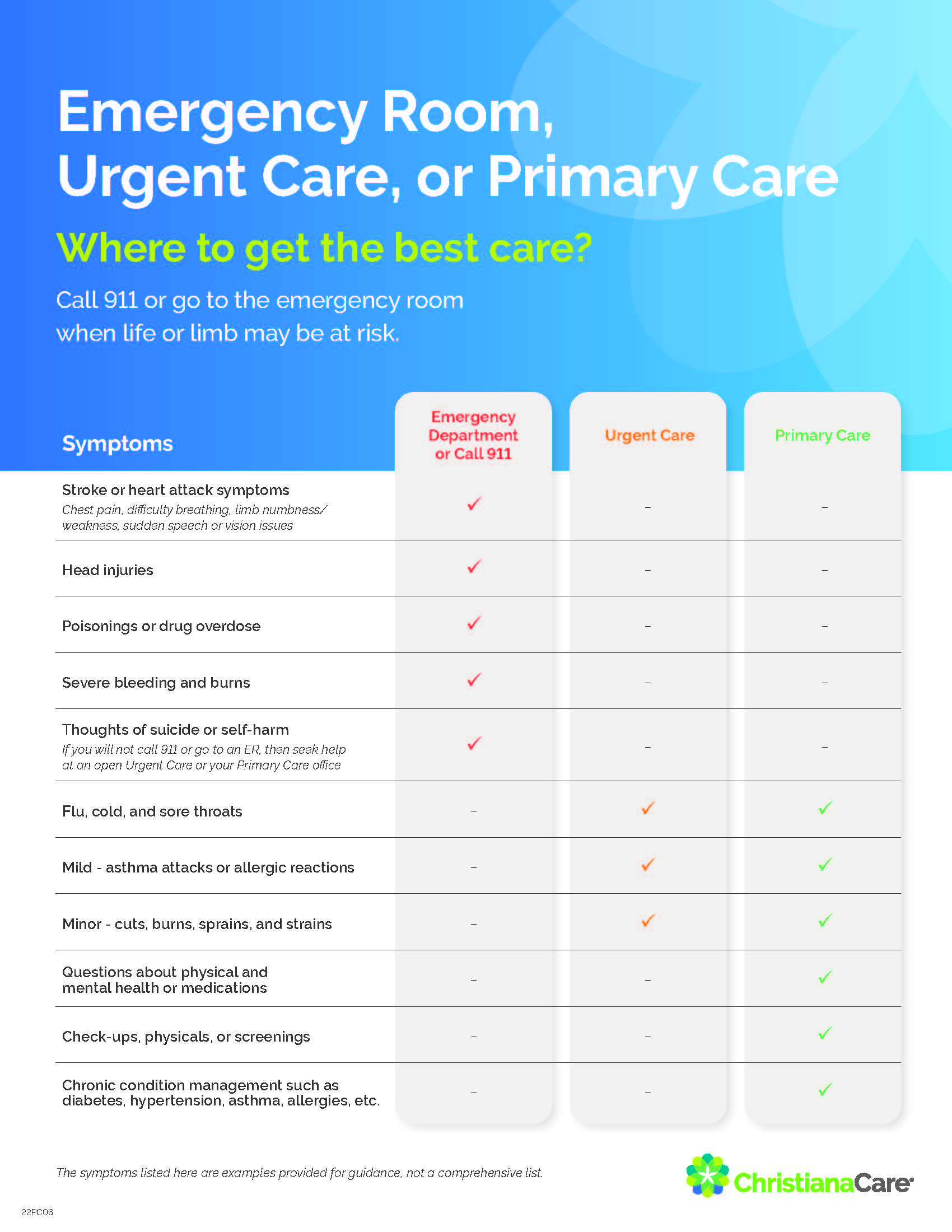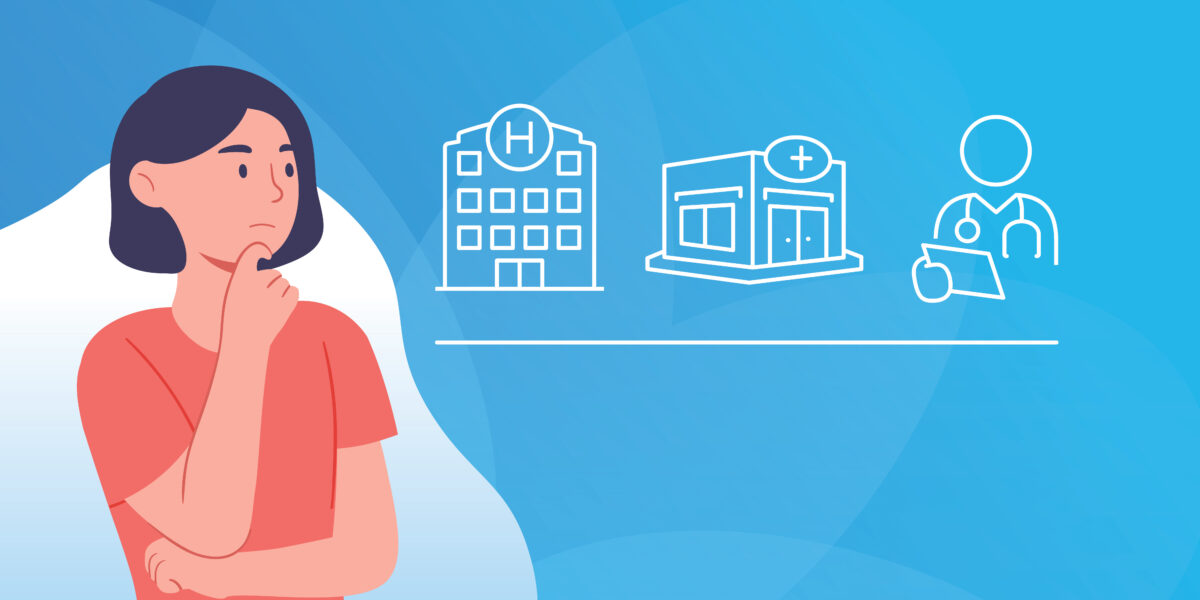It’s the middle of the night. You wake up feeling like an elephant is sitting on your chest. What do you do?
Today your choices for where to get your health care are greater than ever before. Sickness and injury appear when we least expect them. So when they do, knowing if you should go to the emergency room, visit an urgent care center or see your primary care provider will help you choose the right option at the right time.
Use your nearest emergency room for any serious or life-threatening medical situation.
When you have a serious problem that needs care right away, an emergency room (ER) is the best place to go. ERs are set up to handle problems that may be life-threatening, and ER staff are skilled at providing care that can save lives.
Emergencies include problems such as:
- Heart attack or stroke symptoms.
- Severe bleeding.
- Severe trouble breathing.
- Severe pain.
- High fevers.
- Severe abdominal pain.
There were only four more bags of groceries left in the car, and I carried them all into the house — at the same time — in the pouring rain. I stumbled bringing the bags up the stairs and my ankle is as swollen as a whole ham. Where do I go? (To make matters worse, my ice cream melted.)
Use urgent care, stand-alone or walk-in clinics for non-life-threatening injuries or illnesses when your primary care provider is unavailable.
Urgent care, stand-alone or walk-in clinics are where you go when you have a medical problem or concern, not a medical emergency. ChristianaCare has partnered with GoHealth Urgent Care to offer a convenient and affordable way to get health care fast. You can find care near you with same-day evening, weekend and holiday hours – 365 days a year. To find your nearest ChristianaCare GoHealth Urgent Care location, visit ChristianaCare.org/Urgent-Care.
Urgent care visits can help with problems such as:
- Flu, cold and sore throats.
- Minor cuts, burns, sprains and strains.
- Mild asthma attacks or allergic reactions.

I have a lump on my back that won’t seem to go away, no matter how many times I drain it. Who should I see to find out what this gross thing is and how to get rid of it?
Visit your primary care provider for all general health care, such as checkups, chronic conditions and acute illnesses.
Your primary care provider (PCP) or family doctor has the advantage of knowing your health and medicine history. As a partner in your health care, your PCP should be your first stop for everyday health concerns. They may know your health habits, such as diet and exercise, chronic medical conditions, family health history and ongoing medical needs. Plus they can refer you to a specialist if needed. Schedule an appointment with a ChristianaCare primary care provider by calling 302-777-0643 or through the patient portal.
Primary care visits include:
- Annual exams, checkups and screenings.
- Questions about physical and mental health and medications.
- Management of chronic conditions such as diabetes, high blood pressure, asthma and allergies.
Important steps to keep your primary care provider informed about your health care:
- Give your primary care provider’s name and contact information whenever you go to an urgent care or emergency room.
- Contact your primary care provider’s office to let them know you received care at an urgent care or emergency room.
The right type of care for you – right now
Sign up to receive our monthly Health & Wellness newsletter so you can stay on top of the latest health tips, recipes, events and more!
If you don’t think you need emergency care, you can consider what is most important to you on a case-by-case basis. Sometimes, convenience and speed might drive your decision. And in some cases, you may believe it’s better to see a health professional who knows you and your history. Being informed can help you select the right care option at the right time.
To learn more about all the ways ChristianaCare is here to care for you and our community, visit us online or connect with us on social media at @ChristianaCare.



